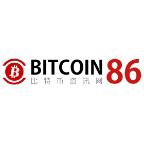Bitcoin revenue accounts for 50% of total revenue, and the exchange continues to reflect blockchain ambitions.
Recently, US mobile payment giant Block (formerly Square) announced that its Cash app Cash has integrated Lightning Network, allowing users to exchange Bitcoin for free.
This is another big move following Square's decision to embrace the blockchain space when it changed its name in December.
The company already owns consumer payment app Cash App, music streaming service Tidal, merchant services ecosystem Seller, and several bitcoin and blockchain initiatives. Additionally, according to Block's Q3 2021 financial statements, Bitcoin's revenue was $1.82 billion, representing nearly 50% of total revenue.
As the founder of two publicly traded companies, Twitter and Block, Jack Dorsey's ambitions for blockchain and Bitcoin continue, leaving Twitter's November 2021 CEO to focus on block execution.
But can block, after Facebook's rebranding, create a new business venture building on Dorsey's vision of "distribution" and his commitment to Bitcoin?
Active switch to blockchain field
On December 10, 2021, Square, a digital payment company joined in 2009 by Dorsey and James McKelvey, changed its name to Block.
It's been less than half a month since Dorsey announced he was stepping down as CEO of Twitter.
Block reported that while focusing on the blockchain market, the company changed its name to be different from the Square brand, which was designed for commercial sales, by legal entities. This is similar to Facebook's previous name change, Meta.
In fact, in the months before and after, Block's activities on the blockchain site continued to accelerate the surge in Bitcoin-related transactions.
On January 14 of this year, Block announced that it would launch a public Bitcoin mining system. Dorsey first announced on Twitter in October last year that he intended to develop a Bitcoin mining system based on custom chips and open data to individuals and businesses around the world.
On the same day, Thomas Templeton, Chairman of Block Hardware, also tweeted that the goal of the plan is to make Bitcoin mining more decentralized and efficient. He also said that the block is expected to solve the industry issues and problems faced by mining users, including the insufficiency, high cost and high electricity consumption of miners.
It should be noted that Intel recently announced its entry into the Bitcoin mining hardware market and launched the “Ultra-Low Voltage Bitcoin Mining ASIC”. It also means that big tech companies like Intel and Block will be competing with companies like Bitmain to compete in the mining industry.
Square's move to Block reflects part of Dorsey's ambitions, and it's no surprise that Block is committed to creating an open mining ecosystem.
On the other hand, Dorsey, the town is well known for its Bitcoin enthusiasts, and Block, which has long focused on payments, continues to expand its range of markets.
Block announced its Cash App, a mobile payment app, in 2013 and launched the Bitcoin Marketplace in early 2018. The latest news is that the Cash App will join the Bitcoin Lightning Network next week. send free bitcoins in seconds from anywhere in the world using the Lightning Network in seconds.
In addition to the large payment business, Block is also trying to expand into other areas. In March 2021, it acquired the majority of the niche music streaming service Tidal, and later developed the Bitcoin DeFi developer platform TBD54566975.
In August 2021, Block seized another opportunity to acquire Afterpay, an Australian "buy now, pay back" company, for $29 billion with the aim of gaining access to consumer qiv.
However, the company is not happy with this and plans to create a Bitcoin hardware wallet and exchange it for Bitcoin. Additionally, Block was one of the first public companies to include Bitcoin on its balance sheet.
Now, Dorsey wants Block to create a business registry focusing on cryptocurrency sites rather than payments. But can its ambitions support economic development?
Marcus Sotiriou, an analyst at Global Digital blockchain blockchain, said that if Block's open-source Bitcoin mining system can be integrated into its core business, the Cash app, many users will use Bitcoin to pay for products and services. you can encourage them to do so. , thus boosting the mass adoption of Bitcoin by comparison.
However, other analysts have pointed out that Block and Dorsey's plans will not bear fruit for years.
L'ambition blockchain de Dorsey
Dorsey founded Twitter in 2006 and served as the company's CEO, but was fired from Twitter in 2008 due to administrative issues and inaction.
In 2015, Dorsey returned to Twitter to become the next CEO. However, the CEO of both companies has faced criticism and concerns from Twitter activist investor Elliott Management Corp. in 2020.
It's hard to predict how strong Elliott will be in Dorsey's recent departure from Twitter for Elliott, but Elliott said he was unhappy with the time he gave him to take on Twitter and Square.
Today, Block is a fintech company with a triple share of Twitter.
Dorsey has long been a Bitcoin supporter. His Twitter profile is "#bitcoin", but interestingly he has no interest in other cryptocurrencies.
Previously, Dorsey sold the first tweet as an NFT for $2.9 million. Shortly after the exchange, he said he would convert his Ethereum earnings to Bitcoin and donate it to GiveDirectly.
At a Bitcoin conference in Miami last June, Dorsey reiterated his love for Bitcoin, saying, "If I wasn't on Square or Twitter, I'd be working on Bitcoin."
Block, which has several bitcoin and blockchain initiatives at this point, gave him the opportunity to "show off his skills".
According to Block's third quarter 2021 financial statements, the company's total revenue is $3.845 billion and Bitcoin Cash app revenue is $1.82 billion, representing nearly 50% of its income, or even all of it.
However, Block acknowledged Bitcoin's $6 million damage cost at the time of the announcement, and Bitcoin investments have recorded our downfall so far.

Scan QR code with WeChat
